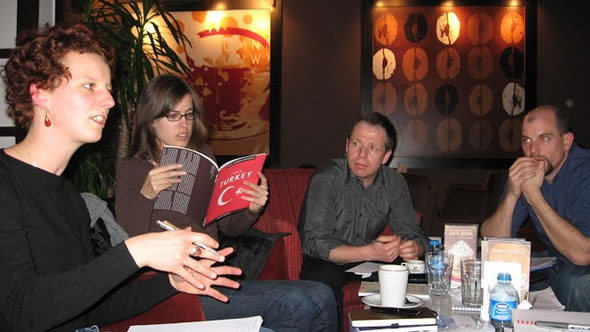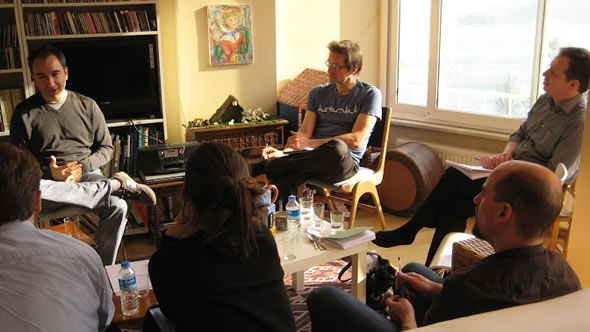Join our team! ESI needs you!
ESI was born during conversations in Sarajevo cafes in 1999, and had its first office in a living room in Berlin.
Since then we have published some influential reports and made television documentaries seen by millions of people. However, we remain a decentralised network, a young and relatively small think tank.
We own no real estate, have no endowment, and possess no car. Our most costly capital asset is a copy machine in our Berlin office. Our most precious resource, however, is the people who make up ESI … and the network of people behind our work since 1999.
If you believe that you would like to join us as a junior fellow in Berlin (or any other city where we might need you) ask yourself the following questions first:
- Do you read widely and passionately, picking up books on many different subjects, driven by curiosity about the way the world, and human beings, work?
- Do you enjoy writing? Can you write under time pressure?
- Do you like research, including the frustrating kind where you turn over every stone four times to see if perhaps there is a new insight hidden underneath it?
- Do you like to work with other people?
- Are you meticulous, attentive to detail, creative, and with a high threshold for the frustration of rewriting the same text 20 times until it is just right?
If your answer is yes to all, or most, of the above questions, there is still one more to answer: are you able and willing to spend at least 3 months full-time with our team, not for the money but for the experience? In return for your voluntary contribution as a junior fellow to our research and advocacy, ESI can provide a modest stipend of a few hundred Euros a month.
What we did at ESI:
Thijmen Koomen – The Netherlands (2023, Berlin)

I joined ESI’s Berlin office as a junior fellow in November 2023. In the three-month period that followed, I focused on topics ranging from boat migration in the English Channel to EU accession policy on the Western Balkans and aid to Ukrainian refugees in the EU. These were all fascinating and highly current topics, which I learned to approach with a clear and critical mind based on independent research. For me, one of the most inspiring aspects was learning how to deal with complex issues in a way that has real-world policy impact. In the process, I developed invaluable research, drafting and analytical skills, all thanks to the helpful feedback and close supervision of my colleagues. Moreover, ESI’s Berlin office was an extremely welcoming work environment and I always enjoyed having lunch together or discussing my work with others over a cup of tea or coffee. Since completing the junior fellowship, I have started working at ESI as an analyst, further focusing on migration and EU accession policy.
Flavia Wiedemann – Austria (2023, Berlin)

Reflecting on my three-month Junior Fellowship at ESI, I am truly grateful for the invaluable experiences it provided. As an Austrian law student, I encountered projects that were new to me, but my colleagues offered me ample time to familiarise myself with the issues I was working on and provided constructive feedback every step of the way.Through this, I became aware of instances where I rushed my research and learned to prioritise attention to detail and go the extra mile. The topics I delved into included, but were not restricted to, police violence in France, tensions in the Eastern Mediterranean, the provision of humanitarian aid to Syria, and the execution of judgments of the European Court of Human Rights. What I particularly enjoyed were the close-knit dynamics of the team and the opportunity to engage in intellectually stimulating conversations covering a wide array of topics, from politics to psychology and philosophy. Following my Junior Fellowship, I completed the last semester of my master’s degree in business law before transitioning to work as a research fellow and lecturer at university. Even now, I often look back on my time in Berlin with a smile. It not only enhanced my understanding of how the world works but will also continue to be a source of inspiration for a long time to come.
Karla Körner – Germany (2022, Berlin)

I started my Junior Fellowship at ESI in Berlin without prior work experience. During these three months, I primarily focused on French asylum and immigration law, the accommodation of Ukrainian refugees in France, and the British-French debate on Channel migration. I developed writing and research skills by compiling statistics, drafting briefings, legal texts, and academic material. My work also helped me to improve my language skills by transcribing and translating political debates and newspaper articles. Besides working at the office, I had the opportunity to participate in workshops on writing and advocacy. I also attended several panel discussions on the topics of refugees, demographics, and integration, and I was able to have a behind-the-scenes look at how policy making works. I am now studying law in Berlin, and I often think back to what I learned and experienced during my Junior Fellowship, as it helps me to connect the theory from university with the actual political impact of legislation and policy making. All in all, working for ESI was an intriguing experience, and I am very grateful to the whole team who believed in the potential of my skills. It was a pleasure to work with them.
Mak Kasapović – Bosnia and Herzegovina (2020, Sarajevo)

Having had no prior professional experience, I can honestly say that my Junior Fellowship at ESI was eye-opening. Not only did I develop a newfound appreciation of facts-based policy, thorough research, and clear and concise writing, but the extensive knowledge I gained during the three-month fellowship prompted me to turn away from abstract theory-driven discussions to consider the pragmatic minutiae of International Relations, which has motivated me ever since. From migration policy in Bosnia and Herzegovina to media freedom in Hungary and conflict remembrance in Croatia, I managed to immerse myself in topics I initially knew nothing about. My mentor guided me every step of the way and was incredibly supportive at every hurdle I faced. The whole team was very welcoming. Although my Junior Fellowship took place remotely due to the pandemic, that did not diminish the feeling of being part of a close-knit community. The fellowship proved to have a domino effect. Afterwards, I went on thoroughly equipped to meet the challenges of my senior year at university, but not before I was offered a position as an undergraduate research assistant, due in no small part to my work at ESI. Suffice it to say that my senior year at university was also my most successful one yet, and I have no one else to thank for that but ESI.
Philip Horster – Germany (2019, Berlin)

During my three months Junior Fellowship at ESI Berlin in the summer of 2019, I worked on various issues spanning from the sea rescue crisis in the Mediterranean, migration to Europe, human rights in Libya and the war in Syria. I worked on policy memos, ESI reports, frequently updated internal data on sea crossings and their status, assisted in meetings with leading politicians and senior civil servants and had several further research tasks including internal status reports on Syria, newly arriving migrants in Germany and news overviews. Being involved in so many issues and tasks, I received a great insight into the work of this dynamic and effective think tank. It helped me understand how think tanks operate and influence decision making processes on the key issues they work on. The working atmosphere at the Berlin office and sometimes in cafés close-by was always friendly, all co-workers were great to work with, quickly involved me in their work and were always open to give advice. The experience also helped me understand what I needed to learn for my own career. I fully recommend applying to anyone interested in finding solutions to the refugee crisis in the Mediterranean and other human rights issues at and within Europe’s borders. After the fellowship, I have completed my BA in European Politics, and I am currently finishing a BSc in Economics and will start my dual master’s in International Energy and International Relations at Sciences Po and Peking University in the summer of 2021.
Pascal Franz – Germany (2019, Munich)
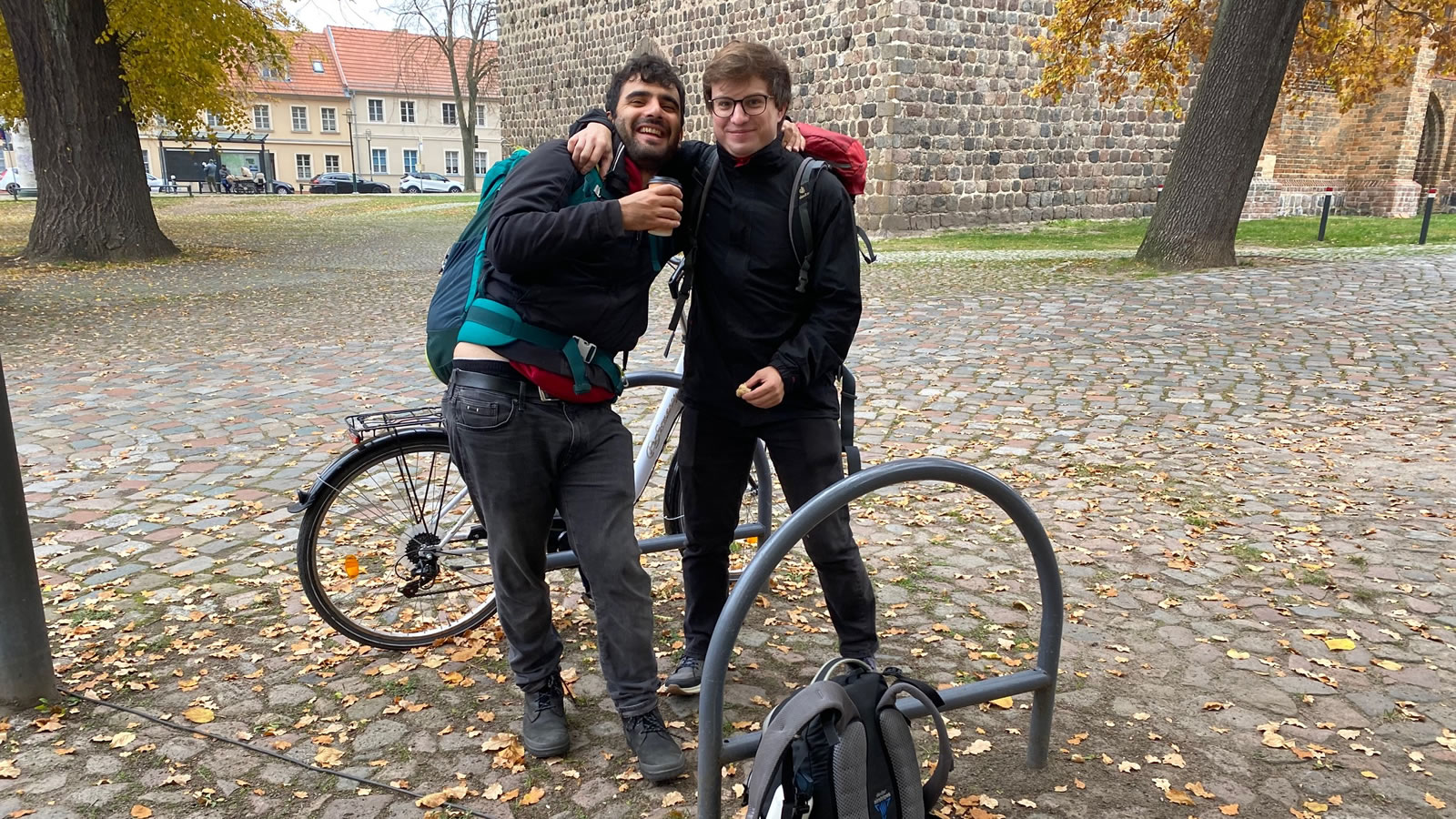
My junior fellowship at ESI in 2019 was one of the most exciting yet. Conducting research on human rights and the rule of law in Europe, migration and asylum in Europe and around world, as well as development aid, made this an excellent internship. At the same time, I learned a lot about how policy papers are structured, how arguments are developed and written, and how everything is put to paper in a concise and precise way. At ESI, I also learned the value of books, of storytelling, the relevance of critical thinking, of reading and being up-to-date on all sorts of issues. Thanks to the great and open team, you can participate in meetings, have a say and get involved. Anyone who is interested in policy work, who wants to have an impact and is open to new experiences can only win at ESI.
Marijn Clevers – The Netherlands (2018, Brussels)
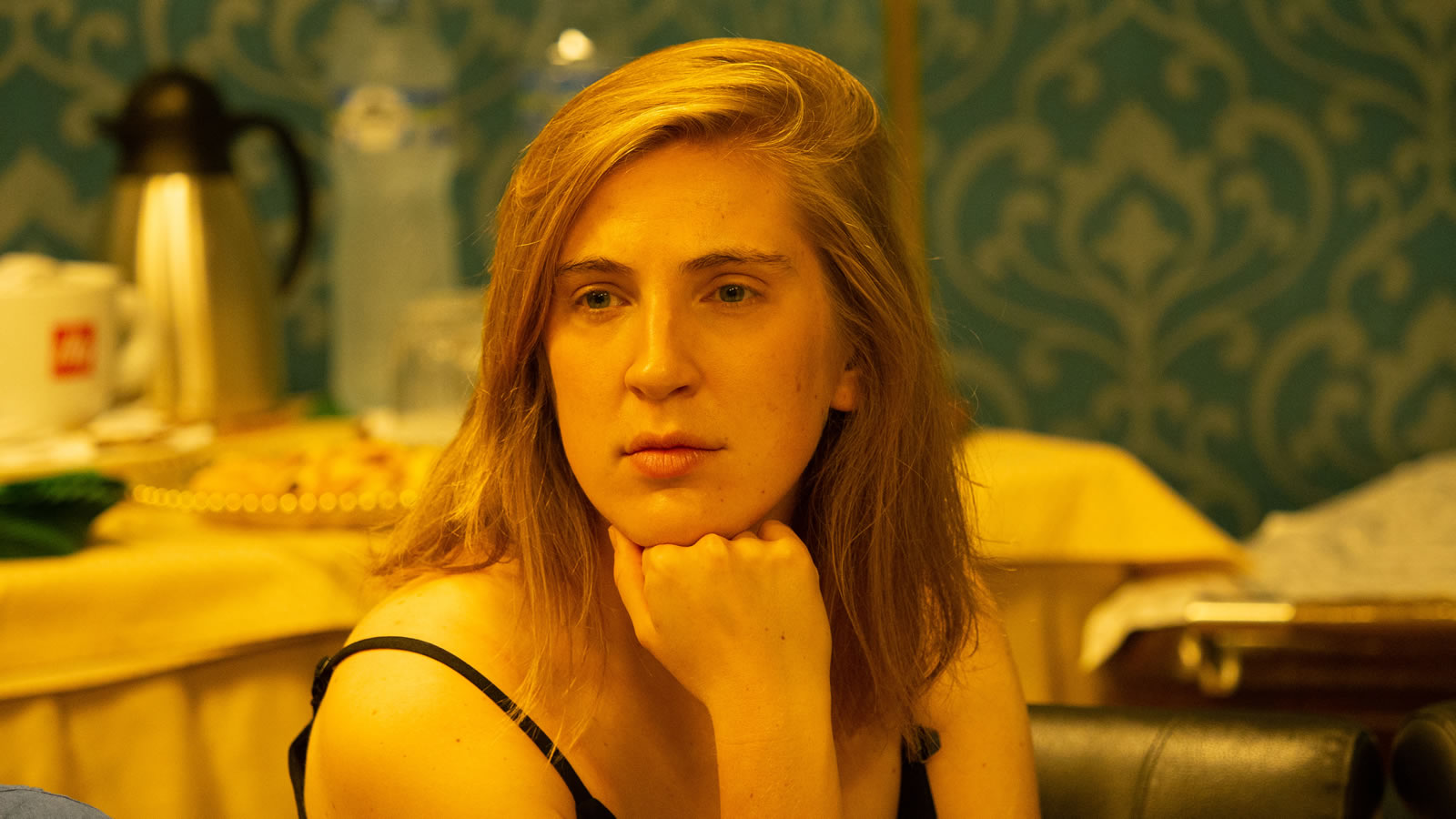
I started my Junior Fellowship in Brussels in the summer of 2018. Working with ESI has been an all-encompassing experience for me! ESI’s internal work procedures and dedicated team provided me the opportunity to experience professional and personal growth on many fronts. I very much enjoyed doing research with the team and ensuring no stone was left unturned to fully grasp all the different facets that play into some of the biggest crises the EU is facing. Taking it from there, we got together to come up with policy papers that are easy to access, concrete and to the point. Furthermore, I very much enjoyed working together with my ESI colleagues, which become more friends than colleagues while time passed by. After finishing my time as Junior Fellow, I stayed on as an Analyst until the summer of 2021. Highlights of my time at ESI included: a trip to Albania where we primarily conducted research, but also had great fun exploring the country’s very rich culture and history, the time I spend in London together with ESI colleague John where we came up with a strategy to increase the potential impact of the European Court of Human Rights and all the vibrant and lively discussions I had with ESI colleague Alexandra with who I was sharing in office in Brussels.
Sanggeet Mithra Manirajah – Malaysia (2016-2017, Berlin)
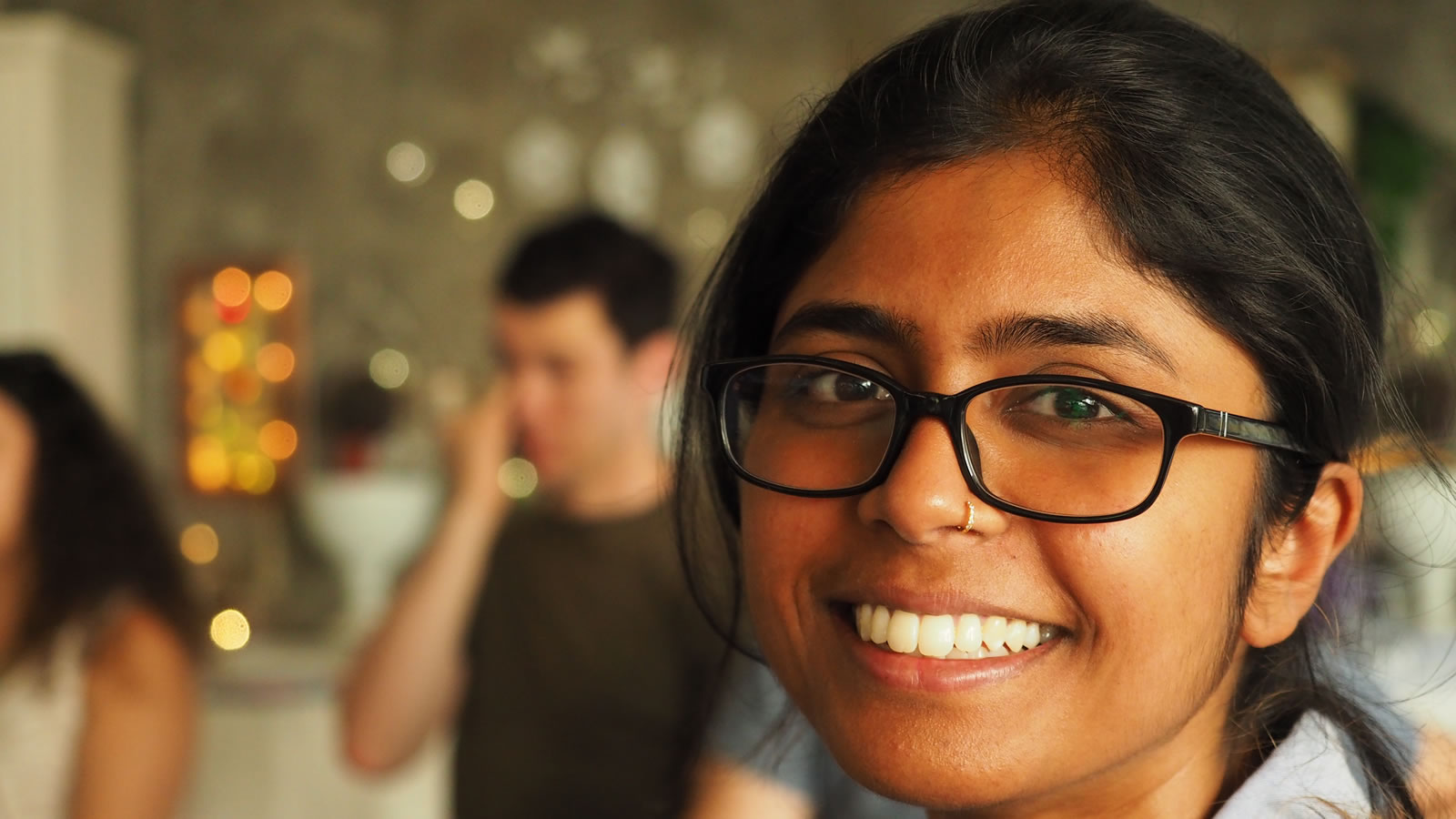
My time at ESI in Berlin and Istanbul between 2016 and 2017 was a time of immense learning. I very much enjoyed working with intelligent, engaging, and passionate colleagues who challenged me to think critically and communicate my ideas effectively. While in Istanbul, I conducted field research to analyse Turkey’s asylum system and the opportunities and challenges around its implementation. In Berlin, I studied the EU asylum system and supported the analysis and development of policy proposals for the Greek and Italian governments. Throughout this process, I reflected on the design and implementation of policies around migration and asylum and their direct impact on people in migration, but also on how these policies are wielded as tools by populist leaders to garner support. During coffee breaks at the office, or while cooking meals together as a team, I continued to learn about other topics that my colleagues were working on – from EU enlargement policies, corruption in European institutions, and how to continue ensuring and protecting rule of law within EU member states. In between, I reflected and read extensively about how these matters are linked to the politics and policy space in my home country Malaysia. In my free time, I also learnt from the two cities I was privileged to have called home for a brief period – cities that have so much history and lessons written into their very streets, architecture, and the lived experiences of people who inhabit them.
Marv Barbullushi – Albania (2016, Brussels)
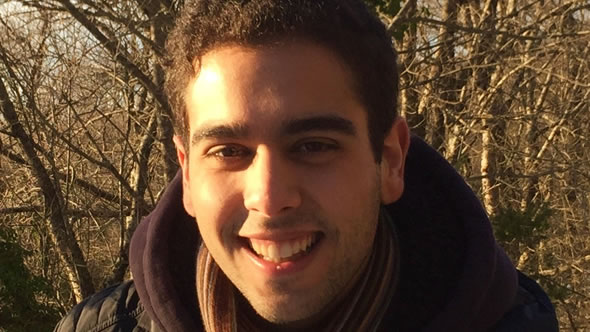
During my Junior Fellowship in Brussels in early 2016, I got to witness ESI's work at the height of the refugee crisis helping me to understand the key role think tanks can have in shaping the policy-making process. My tasks ranged from desk research on migration across the Balkans and the implementation of the EU-Turkey Statement, to assisting ESI's senior analyst in meetings which allowed me to follow ESI's advocacy campaigns from within. The atmosphere at ESI was very friendly. After my fellowship I did a five-month traineeship at the European Parliament, in addition to a one-month traineeship as a MEP assistant. After that, I started a Master program in "International Relations and Diplomacy" at the College of Europe in Bruges.
Robert Hayes – UK (2017, Brussels/Berlin)
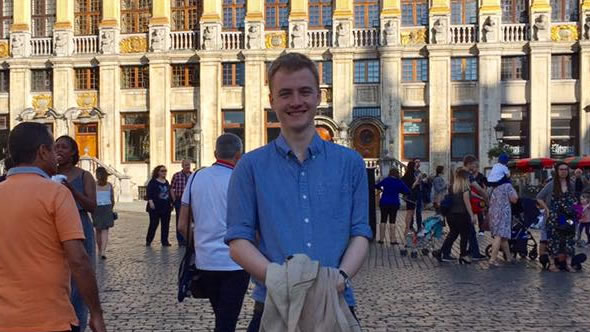
I was delighted with the variety of issues I worked on during my three months with ESI – from responses to the refugee crisis in the Mediterranean, to human rights in Azerbaijan, to disputes between Greece and Macedonia. It was a challenge to get my head around unfamiliar situations and to be able to switch focus between them at a moment's notice which certainly developed my analytical skills. Brussels was a wonderful city to work in, and I was able to attend sittings at the European Parliament and conferences at the many other think tanks operating there; it was also great to visit the rest of the team in Berlin for a couple of weeks. The diversity of experience and backgrounds at ESI meant that discussions were always enlightening – I was lucky to work with such friendly and talented people! I couldn't recommend the Junior Fellowship any more to those considering a future in policy research. It was my first experience of any such work, but the total immersion from day one quickly teaches you the skills to analyse policy papers and reports with confidence.
Kiril Zahariev – Bulgaria (2015/2016, Berlin)

My nine-month Junior Fellowship in Berlin and Istanbul offered me the possibility to witness current political debates from a privileged perspective. Besides gaining a first-hand experience in the areas of researching, writing and advocacy, I was directly exposed to truly stimulating debates with people coming from different areas of expertise. I was surprised to discover that the organization was rather small and, despite its members being based in different cities, it was no less efficient than a bigger one. Seeing this small team having a leading role in issues like the Syrian refugee crisis or the EU enlargement process encouraged me to persistently refine my arguments when writing. In those months, I felt as if my work contributed to real changes in policy debates! The analytical and writing skills that I developed as a junior fellow – as well as ESI's positive spirit – will surely help me in my next career steps.
Pavel Guranda – Moldova (2015, Berlin)
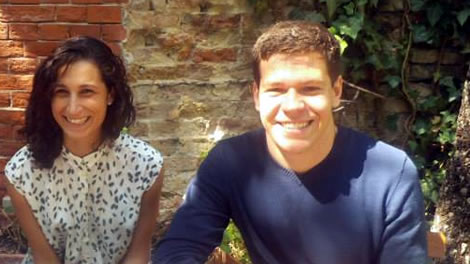
Being a Junior Fellow at ESI was a lot more than just a summer work experience. I have great memories of the three months I spent in Berlin, and I often think about that time as really inspirational. The Berlin team was very welcoming and I still remember when I first entered the office: I immediately noticed the shelves full of books. Working surrounded by books is a nice reminder of the importance of reading and critical thinking. The power of clear and intelligent writing at ESI motivated me to learn how to communicate my ideas better. Together with the other team members I would discuss a range of issues ranging from political prisoners in Azerbaijan to successful human rights campaigns across the world and to the EU's relationship with the Republic of Moldova. During these months, I could see a clear improvement in my ability of making an argument.
Michael Lenihan – USA (2012-2013, Berlin/Istanbul)
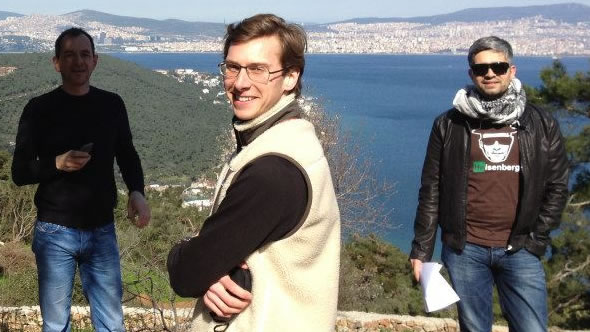
Working with ESI in Berlin and Istanbul this past year has been an eye-opening experience. I came to the organization having worked in politics and strategic communications - two fields where you are expected to know something about everything. ESI challenges that model, expecting you to know everything about something. It is an opportunity to immerse yourself in topics and events that interest you, and that have real implications for people living in and around Europe. My research on Moldova's transition from Soviet republic to EU partner is a great example of how the EU is effectively inspiring meaningful reforms in neighboring countries. With the new perspectives I've gained, and the research techniques I've garnered, I am looking forward to furthering my European studies as I earn my masters in International Affairs and conflict resolution at Columbia University in New York. ESI allowed me to see and understand an important part of the world in a new way, while helping inform the opinions of those working to create a better Europe.
Sena Marić – Serbia (2011-2013, Brussels)
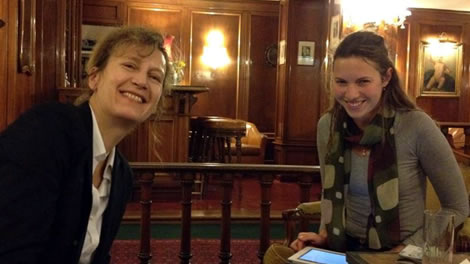
Looking back at my engagement with ESI – being my first professional experience, I can say that my career couldn't have started better. Nowadays, I feel confident while writing analysis, reports, project proposals, etc, all thanks to what I have learnt in ESI. Having been in Brussels, in the centre of the EU decision-making, my working hours were never boring: apart from desk research and writing tasks, I was very often attending high-level conferences and events, meeting relevant stakeholders from the European Parliament, the EU member states, Turkey and Western Balkans, or taking part in the organisation of public debates. Needless to say, Western Balkans and Turkey produce more research material and inspirations than one is capable to process them, thus always challenging you to perform better.
Victoria Kupsch – Germany (2011-2012, Istanbul)
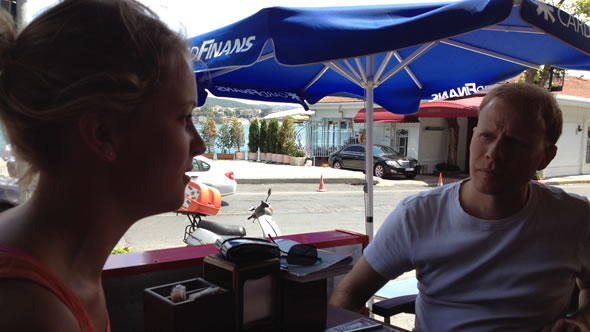
In early 2011, I joined ESI Istanbul as junior fellow and soon started working as policy analyst and coordinator on the The European debate on Turkey project. Together with an international team of wonderful fellows from France, Germany, The Netherlands, Belgium, and Austria we produced a series of chronologies monitoring the public debate on Turkey. Not only was I in Turkey – culturally and historically one of the most fascinating and exciting countries in Europe – but also could I witness the political debate from within. I could see and feel the conflict lines and arguments surrounding Turkey's hopes for a future as a member of the European Union. After five months, I was given the opportunity to head ESI's Istanbul office, which I happily took. Surely, this came with a lot of challenges but I could not have learned more in such little time. One of the most exciting parts was to join events, international conferences, and seminars in Istanbul, Berlin, Brussels, and Vienna – once more I grasped how heterogeneous political positions in and on Turkey can be and just how prudent one has to seek for compromise. After almost two years with ESI, I am currently finishing my MSc in Democracy and Comparative Politics at the University College London with a dissertation on the Europeanisation effects on Turkey's minority policies.
Adriana Ciobanu – Romania (2011-2012, Berlin)
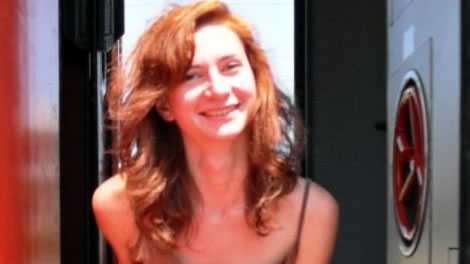
I joined the ESI office in Berlin in September 2011, and throughout the next months I have had the chance to work in a team of wonderful people. I did research on the Republic of Moldova for the documentary film 'Moldova - Lost in Transition', and as a political science student I found the experience to be extremely rewarding. I had the opportunity to conduct research on precise topics such as visa liberalization or the wine industry and I took part in two research trips to Moldova, Transnistria, and Northern Romania, where we did interviews with decision-makers, analysts, religious figures, artists, etc. Having obtained my Bachelor's degree, I continued my studies at Sciences Po Paris where I am currently pursuing a Masters in Law.
Melissa Panszi – Mexico (2010, Istanbul)
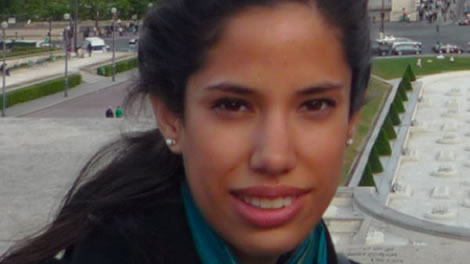
Looking back at my engagement with ESI – being my first professional experience, I can say that my career couldn't have started better. Nowadays, I feel confident while writing analysis, reports, project proposals, etc, all thanks to what I have learnt in ESI. Having been in Brussels, in the centre of the EU decision-making, my working hours were never boring: apart from desk research and writing tasks, I was very often attending high-level conferences and events, meeting relevant stakeholders from the European Parliament, the EU member states, Turkey and Western Balkans, or taking part in the organisation of public debates. Needless to say, Western Balkans and Turkey produce more research material and inspirations than one is capable to process them, thus always challenging you to perform better.
Joanna van Lynden – The Netherlands (2010, Berlin)
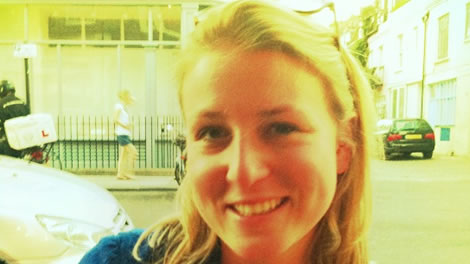
I did a two month fellowship at ESI in Berlin, and enjoyed my time thoroughly. Prior to ESI I gained a Bachelors degree at University College Utrecht, and worked as an intern at the Turkey Institute, a Dutch NGO that aims at broadening the knowledge of Turkey in the Netherlands. At ESI my main task was to research Turkey-EU relations, in particular European public opinion on Turkish accession. The work was interesting, and taught me to research online effectively as well as conduct telephone interviews with EU functionaries. In addition I was given the opportunity to help write an ESI report on the Turkish accession process and worked closely with my colleagues of the Istanbul office. The atmosphere at ESI was welcoming from the start and I soon felt part of the team. After my fellowship at ESI I did a five-month traineeship at the European Commission in Directorate General for Enlargement in Brussels, and then went on to study a Masters in 'Politics and Government in the EU' at the London School of Economics.
Valentin Ariton – Romania (2010, Berlin)
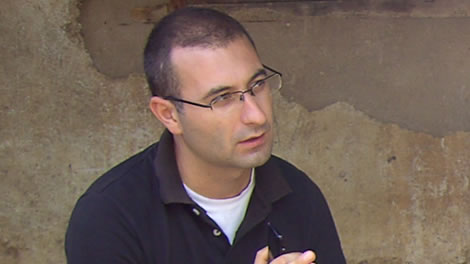
My work with ESI has focused on the challenges of managing structural and cohesion funds in Romania and contributed to the ESI "EU enlargement" project. The ESI fellowship provided me with a hands-on experience on a core policy problem of the EU new member states. While combining the field research with analytical work my fellowship squared the knowledge I received during my public policy studies. The friendly work environment allowed me independence while constantly pushing for an innovative and critical intellectual production. Finally my ESI experience successfully contributed to my master thesis preparation and further professional path.
